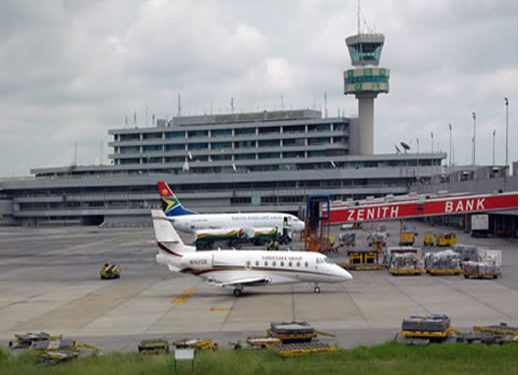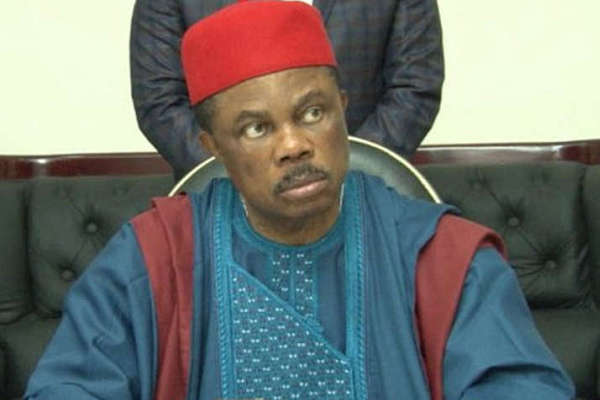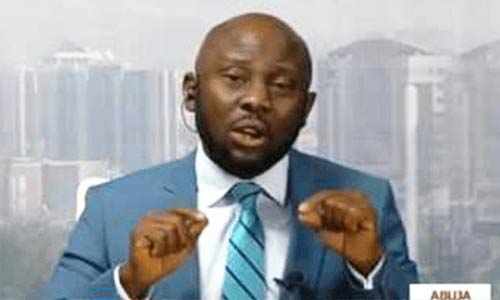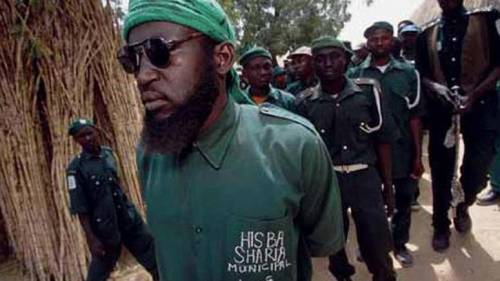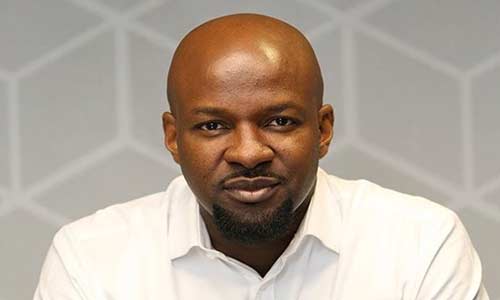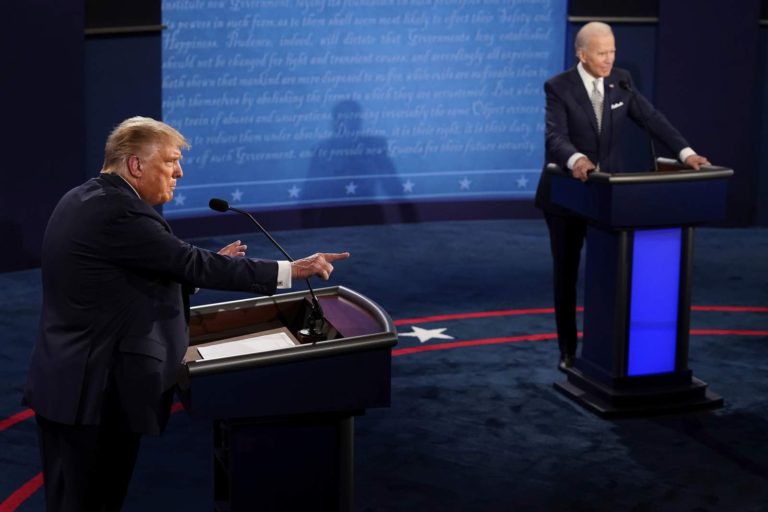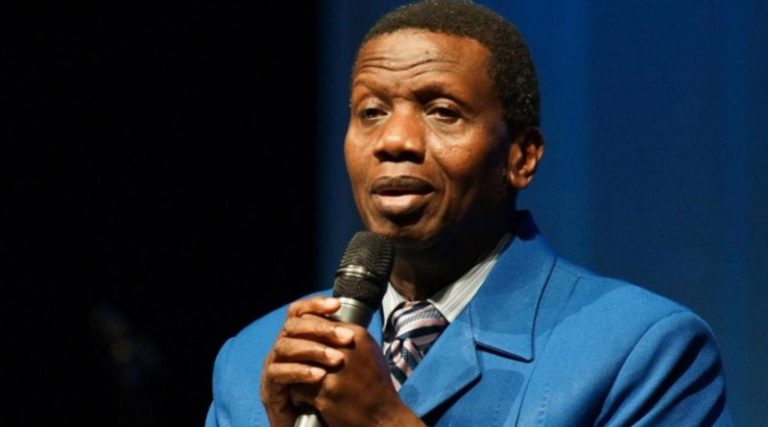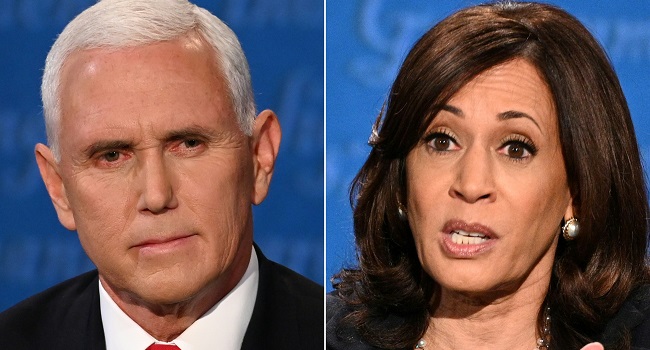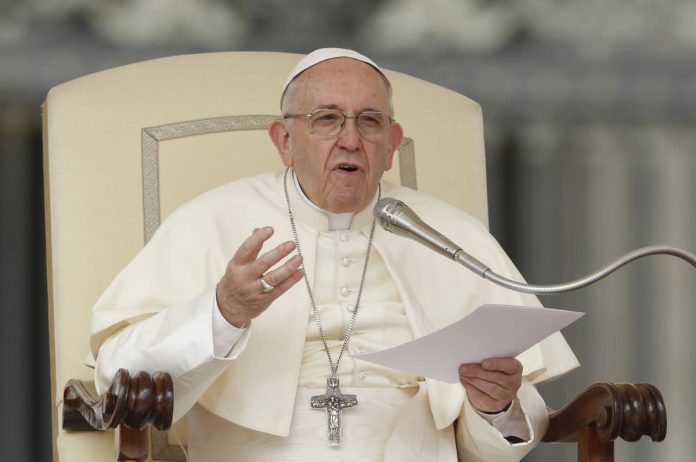The Nigerian Minister of State for Industry, Trade and Investment, Ambassador Mariam Katagum, has called on Heads of State Delegations to the World Trade Organisation (WTO) to endorse Dr Ngozi Okonjo-Iweala on the strength of her antecedents, competence and statement to the General Council.The second phase of consultation for the appointment of a new WTO DIrector General was concluded on 6th October with the third and final round now underway.Dr Okonjo-Iweala is widely favoured to clinch the top job.In a statement issued in her capacity as Chairperson of the Okonjo-Uweala Campaign Team, Ambassador Katagum charged Heads of Delegations to read again, the statement of intent and agenda submitted by Dr Okonjo-Iweala, describing the former Nigerian Minister of Finance as “the best choice for the job.”She commended the series of endorsements of Dr Iweala’s candidacy from the Economic Community of West African States (ECOWAS) to the European Union (EU) as “an excellent testimony of her eminent qualification for the top job”, adding that “the WTO of today needs a DG with multiple skills to revive the challenged spirit of trade liberalisation world wide.”“The WTO faces a lot of problems currently. Confronting these challenges necessarily requires building trust among the membership especially as the problems are not solely of a technical nature. Only a DG with the requisite political and negotiating skills coupled with multilateral experience can ensure deep engagement of the members in order to restore trust and build a truly efficient organisation. Dr Iweala is the right fit”, she said.Katagum, who before her appointment was the Nigerian Ambassador, Permanent Delegate to UNESCO, further noted that “Dr Iweala’s qualities and experience in managing multilateral issues, in trade facilitation and negotiation as well as brokering deals and agreements with high political stakes, puts her in good standing.“Her suitability is a product of past and present experience garnered from her Vice Presidency at the World Bank; Finance Ministry portfolio in Nigeria; and her other current global assignments, including with the Gavi Board where she is the Chairperson.” At a time when the world is grappling with the devastating fallout of the Covid-19 pandemic on the world economy, a person of Dr Iweala’s standing is required to steer the ship of the WTO. When all indices are taken into consideration, the WTO indeed needs an internationalist, a multilateralist, a skilled and tested negotiator – all traits the General Council can find in the Nigerian and ECOWAS nominee”, Katagum, herself a tested diplomat reiterated.Quoting from Dr Iweala’s statement to the General Council, the Nigerian Minister said “I believe she brings exactly the right combination of skills and experience (public sector, international civil society, multilateral organisations and worldwide network of contacts) needed to lead this organisation in the future.”It would be recalled that at the Heads of Delegations’ meeting on 18th September, 2020, Amb. Walker and his two co-facilitators in the selection process disclosed the five candidates who had secured the broadest and deepest support from the WTO membership and should consequently advance to the next stage of the process.Amb. Walker said the second phase of consultations would begin on 24th September and run until 6th October, stressing that during this time, members would be asked in the confidential consultations to express two preferences to the facilitators with an eye to bringing the number of candidates down from five to two.Following this process, Amb. Walker would call another Heads of Delegations’ meeting at which the results will be announced to the WTO membership.
Customs foils attempt to smuggle 8,228 ATM cards to Dubai in one month; what exactly is happening?
The Nigeria Custom Service (NCS) within the last one month has foiled two attempts to smuggle out 8,228 ATM cards in the last one month raising questions as to why the crime is gaining traction. And how many have slipped them through to Dubai and elsewhere.
The Kano/Jigawa Command arrested a Dubai-bound passenger in possession of 5,342 ATM cards at the Malam Aminu Kano International Airport, Kano.
A month earlier, the Economic and Financial Crimes Commission (EFCC) announced it was investigating a suspected fraudster caught concealing 2,886 Automated Teller Machine (ATM) cards and four SIM cards in noodles while on his way to the United Arab Emirate, Dubai.
The Customs Area Comptroller, Mr Nasir Ahmed, stated the arrest of the new culprit while handing over the suspect to the Economic and Financial Crimes Commission (EFCC), on Wednesday in Kano.
The Lagos zonal head of the EFCC, AbdulRasheed Bawa, gave an insight into why the new crime is on.while receiving the Lagos airport suspect on behalf of the commission, said, “we have taken over Ishaq and I can assure you that we are going to investigate the matter thoroughly and unveil everybody involved in the syndicate.
“There are a number of possibilities. There is an element of conspiracy, foreign exchange (FOREX) malpractices and money laundering.
“Indeed, banks and bankers are definitely involved.”
“In recent months, we have observed a trend in which unsuspecting Nigerians are lured into opening accounts to be bought at a fee.
“Most bankers are not carrying out their duties with due diligence, particularly the Know Your Customers, (KYC), procedural check,” he said.
In Kano, the Customs boss, Ahmed said the suspect was arrested while about to board a Dubai-bound Ethiopian Airlines with the ATM cards concealed in two sacks of beans by the personnel of the command at the airport.
”It can be assumed that the suspect can withdraw up to one million dollars in a day, at the detriment of the national economy.
”We handed over the suspect, his passport and other travelling documents to the EFCC for further investigations,” Ahmed said.
Also speaking, Mr Sanusi Aliyu, the Head of the EFCC Zonal Office comprising Kano, Katsina and Jigawa, commended the service for effective surveillance to check crimes and financial crime in the airports and other point of entry in the country.
Aliyu said the commission would conduct thorough investigation.
”Investigation is necessary to establish the reasons behind the acts and other persons involved in the acts.
“The Nigeria Customs Service has been a very good partner of the EFCC in the fight against economic and financial crimes in the country,” he said.
Aliyu pledged continued partnership with the service to check graft practices in the country.
Last September, EFCC spokesperson, Dele Oyewale, said the suspect in the Lagos smuggling attempt, Ishaq Abubakar, was arrested by the Nigeria Customs Service at the Murtala Muhammed International Airport, Lagos, and handed over to the EFCC Lagos zonal office for investigation and prosecution.
The commission quoted the Customs Deputy Comptroller, Enforcement, Abudulmumuni Bako, as saying the suspect came from Kano State and wanted to travel via an Emirate flight.
“The Customs Deputy Comptroller, Enforcement, Abudulmumuni Bako, who represented the Customs Area Comptroller, A. Ma’aji, said that the suspect, who claimed to have come from Kano to travel to Dubai aboard the Emirate Evacuation flight, was seen with someone who was assigned to facilitate his movement through the airport checks.
“Officers of the Customs service intercepted the suspect with 2,886 ATM cards and four SIM cards, which he carefully concealed in parks of Noodles.
“This raised the suspicion of the officers who insisted he should be physically and thoroughly checked after the scan machine had revealed he was carrying parks (sic) of noodles,” he said.
After 8-year-old maid is doused in hot water for licking baby’s milk, she is locked up unattended by husband and wife
Eight-year-old Chiamaka Oha is battling for her life at the General Hospital, Uga, Anambra State, after she was allegedly bathed with hot water by her employer, Ogochukwu Anichukwu, for licking her baby’s milk.
The victim who hails from Ugwueme community in the Awgu Local Government Area of Enugu State, lived with her employer and the husband at at Nanka community, in the Orumba North LGA of Anambra State.
It was alleged that Anichukwu on September 25, 2020, poured hot water on the victim for licking her baby’s milk and shut the door against her to prevent people from seeing the injuries she sustained from the attack.
A neighbour who visited the family saw the maid’s condition and reported the matter to a non-governmental organisation, Human Rights Legal Aid Initiative. The NGO was said to have rescued and taken the victim to a medical facility in the area.
Aanother group, Awgu Egbeleli Socio-Cultural Development and Unity Forum, transferred the victim to a general hospital.
A member of the forum, Chidi Okoh said the group learnt about the incident through the social media.
He said, “When we saw a video of the girl on social media, we were moved with compassion, and sent one of our members, Chief Sunday Nwankwo, who resides in Onitsha, to investigate the incident. When he got there, he was shocked at the inhuman act meted to the victim by the woman and her husband.
“Chief Nwankwo handled the medical bill at the private hospital where the victim was taken to for resuscitation and moved her to the general hospital.
“We learnt that the girl’s offence was that she licked the milk meant for Anichukwu’s baby. She poured hot water on her and locked her inside so that neighbours won’t see her in that state.
“Neighbours confirmed to have seen the girl eating sand on several occasions because of starvation. When we asked the woman why she poured hot water on the victim, she said she was bathing her baby and didn’t know when the hot water poured on her; her husband admitted to beating and inflicting injuries on Chiamaka in the past.”
The Ekwulobia Zonal Coordinator of Human Rights Legal Aid Initiative, Akaneme Chijioke, who condemned the attack, confirmed the victim was in pains when the group rescued her.
He said, “There were sores all over her body. The woman used a hard object to beat her and damaged her fingernails. Her face and mouth are filled with injuries.
“The girl looked frail, hungry, malnourished and traumatised and when we asked the woman what happened, she said she mistakenly poured hot water on her. When we took the child aside to interrogate her, she said the woman was always beating her and that she never licked any milk. She also said she ate sand sometimes to stay alive. We then went back to the woman to find out why they had not taken the girl to hospital; she said they did not have money.”
The matter was reported at the Uga police area command and the couple had been arrested.
The Anambra State Police Public Relations Officer, Haruna Mohammed, said he was not aware of the matter.
SOURCE: Punch
Cancel The Purchase Of N5 Billion Gold From Zamfara Govt, It Is Illegal And Threat To Security — Lawyer Writes CBN Governor
A human rights lawyer and Activist, Mr. Joseph Onu Silas has written the Central Bank of Nigeria (CBN) seeking cancelation of the purchase of gold worth 5 billion Naira from Zamfara State government by the bank
Silas, in a letter addressed to the CBN Governor, Godwin Omiefele, sighted by TheNigeriaLawyer (TNL), said he is surprised by such action taken by the bank. He described the purchase as “illegal” and a waste of “scarce public funds”
“I am worried that Central Bank of Nigeria under your leadership is tending towards becoming a commercial bank and even more worrisome is that the Central Bank of Nigeria has acted in total disregard of Nigerian laws and has displayed its penchant to waste scarce public fund in the placement of this illegal gold purchase order” he said
The human rights lawyer said section 1(4) of the CBN Act, 2007 which permits the bank to acquire, hold and dispose of movable and immovable property does not extend to engaging in a business venture such as the purchase of gold neither does section 2 of the Act which sets out objectives of the bank include “commerce or trading in gold”
He added that the Nigerian Minerals and Mining Act, 2007 makes it clear in section 1(1) and (2) that: (1) the entire property in and control of all mineral resources in, under or upon any land in Nigeria, its contiguous continental shelf and all rivers, streams, and watercourses throughout Nigeria, any area covered by its territorial waters or constituency and the Exclusive Economic Zone is and shall be vested in the Government of the Federation for and on behalf of the people of Nigeria. (2) All lands in which minerals have been found in commercial quantities shall, from the commencement of this Act be acquired by the Government of the Federation in accordance with the provisions of the Land Use Act
“Sir, by sealing this deal with the government of Zamfara State, are you admitting that as the head of Nigeria’s apex Bank, you are unaware of the laws of this nation?” Silas queried
He continued, “I ask this question simply because the news of your action is only possible if the Southern States of this nation can also enjoy such offers from the Central Bank for the purchase of petroleum products.”
Furthermore, Silas said such purchase is “the highest insult on the sensitivities of Nigerians” because Zamfara government has no gold to sell, the gold is for federal government, and CBN is not permitted by its enabling Act to engage in the business of buying goods that are solely commercial in nature
Silas again queried, “Also, are you aware that this singular indiscreet action of yours is capable of throwing this nation’s fragile security into chaos? What will be your response to people from the Southern States if they now begin to insist that all the Mineral resources found within their respective States does not belong to the Federal government and opts to begin selling them directly to anyone?”
He called on the CBN governor to cancel the transaction immediately or face legal action.
“with all patriotic zeal and love for this nation, I am urging you to immediately rescind this transaction as it is not only illegal but also potentially dangerous for the peace and security of our nation. I am not against the CBN providing financial support for the development of Nigeria ln mining Sector, but this is not such support. If this illegality is not discontinued immediately, I will be compelled to Institute a criminal complaint against the Management of the Central Bank of Nigeria and the officials of the Zamfara State government, in addition to a civil action in court.” he said
Hisbah Bans Girls, Ladies From Using Mobile Phones, Wearing Sunglasses In Kaduna
A resident of the community, who spoke with SaharaReporters, raised the alarm over the increasing repressive activities of the religious police in the region.
Officials of Hisbah in Kaduna State have banned girls and ladies in Kuriga Village under Chikun Local Government Area from using or possessing mobile phones and sunglasses.
A resident of the community, who spoke with SaharaReporters, raised the alarm over the increasing repressive activities of the religious police in the region.
He alleged that Hisbah had been ‘frustrating the lives of youths in Kuriga and often carry out severe punishment for moral failings’.
“Hisbah is punishing youths for keeping afro hair and sometimes it is accompanied with beating.
“They have also prevented women and girls from using smartphones, claiming that it is used to spread unIslamic behaviours. They are just terrorising us,” he told SaharaReporters.
Another resident of the town also said Hisbah personnel have prohibited women and girls from using sunglasses.
“They also sometimes storm houses where ceremonies are taking place and punish playing of music, dancing and any form of entertainment,” he said.
Hisbah recently made headlines for shaving off stylish haircuts of young men in Kano, arresting people for improper dressing and seizing tricycles from riders for adorning them with pictures considered to be obscene and against the tenents of Islam.
https://platform.twitter.com/embed/index.html?dnt=false&embedId=twitter-widget-0&frame=false&hideCard=false&hideThread=false&id=1312648659293614082&lang=en&origin=http%3A%2F%2Fsaharareporters.com%2F2020%2F10%2F08%2Fhisbah-bans-girls-ladies-using-mobile-phones-wearing-sunglasses-kaduna&theme=light&widgetsVersion=ed20a2b%3A1601588405575&width=550px
The agency established to enforce Sharia law in some states in Northern Nigeria, also banned stylish haircuts, sagging of trousers and playing of music at social events by disk jockeys in Kebbi State.
The group also banned commercial motorcycle and tricycle riders from carrying two women at a time.
https://platform.twitter.com/embed/index.html?dnt=false&embedId=twitter-widget-1&frame=false&hideCard=false&hideThread=false&id=1313830314880499719&lang=en&origin=http%3A%2F%2Fsaharareporters.com%2F2020%2F10%2F08%2Fhisbah-bans-girls-ladies-using-mobile-phones-wearing-sunglasses-kaduna&theme=light&widgetsVersion=ed20a2b%3A1601588405575&width=550px
This is in addition to other unusual directives reeled out by the Islamic police.
Despite condemnation from Nigerians, the group has continued its push for Islamic agenda in the North.
SaharaReporters
YouTube Announces $100m ‘Black Voices Fund’ For Nigerian Artists, Creators
YouTube on Thursday announced that artists and creators from Nigeria could apply for grants from its global 100 million dollar Black Voices Fund.
Alex Okosi, Managing Director, Emerging Markets, YouTube EMEA said in a statement that the global fund would over the next three years offer support to Black artists and creators.
Okosi said that the fund to enable artists and creators could thrive on YouTube.
The managing director said that Black Voices Fund would invest with the intention to present fresh narratives that emphasise the intellectual power, authenticity, dignity, and joy of Black voices, as well as to educate audiences about racial justice.
He said that the $100m fund was first announced in June and was officially named the #YouTubeBlack Voices Fund.
According to him, this year, the fund will be focusing its efforts on creators within the US, Brazil, Kenya, Nigeria, and South Africa.
“Our goal is to expand funding to more countries over the course of the next three years,”
“Additionally, we hope to provide a consistent drumbeat of educational training, workshops, and community events to Black creators and artists globally.
‘’The #YouTubeBlack Voices Fund is part of the work currently underway to ensure that YouTube is a place where Black artists, creators and users can share their stories and be protected,’’ he said.
According to Okosi, along with our commitment to amplifying marginalised voices on the content side we are also investing in product and policy changes that will continue to advance YouTube’s mission.
He said the mission of giving everyone a voice and showing them the world.
Okosi said that YouTube believes that it is only by taking a stand against those who would try to bully, harass, silence and intimidate others that it truly moves closer to achieving this mission.
He said that YouTube’s new efforts included ramping up enforcement and terminating more accounts that repeatedly post hateful comments.
The MD YouTube was also in the process of rolling out product changes to make creator moderation tools more streamlined.
Okosi said that Interested artists and creators could apply for funding here.
The News Agency of Nigeria (NAN) reports that launched in May 2005, YouTube is the world’s most popular online video community allowing billions of people to discover, watch, and share videos.
(NAN)
Second Trump-Biden debate’ll be virtual, organisers say
The second debate between President Donal Trump and former American Vice President, Joe Biden, will be virtual, with both candidates appearing from separate remote locations, the Commission on Presidential Debates announced, on Thursday.
This came nearly a week after President Trump announced he had tested positive for COVID-19.
The debate, scheduled for October 15, “will take the form of a town meeting,” organisers said.
Trump’s announcement of his positive COVID-19 test had thrown the status of all future 2020 debates in doubt. The debate between Vice President Mike Pence and California Sen. Kamala Harris went on as planned Wednesday night with on-stage dividers between the candidates after both had tested negative for the coronavirus.
Steve Scully of C-SPAN is still set to moderate the second presidential debate, from Miami. (Foxnews)
Adeboye Didn’t Go Far Enough, By Azu Ishiekwene
According to news reports, he warned that if nothing was done to restructure, the country might break up, even though he didn’t pray for it to happen.
You had to read it twice and pinch yourself to believe that it was Adeboye. It was like the Pope giving a hint that the Church could lose its female members if it didn’t amend the Code of Canon or the Ordinatiosacerdotalis.
Adeboye doesn’t just talk. As the leader of one of Nigeria’s largest Pentecostal churches with branches in over 160 countries around the world and a membership of over 50 million, he chooses his words carefully.
Recently when some Christian religious leaders mounted a vigorous protest against the amendment of portions of the Companies and Allied Matters Act (2020), Adeboye chose a different approach. He sought private audience with President Muhammadu Buhari and refused to speak when the press later asked him what the visit was about.
The only appearance of a radical public posture in recent times was Adeboye’s visit to former Governor Ayo Fayose of Ekiti State at the height of the state’s bloody encounters with herdsmen. Fayose expectedly framed that visit as an endorsement of his decision to hang any trespassing herdsmen by the horn of their cows.
Apart from that visit and a few incursions on the domestic issue of whether or not a woman who cannot cook is ready and fit for marriage, Adeboye has largely minded the gospel – until last week.
He said at a church symposium to mark Nigeria’s 60th independence anniversary, that one lasting way to tackle the country’s socio-economic and political fissures was to restructure. In a message that could have been entitled, “Restructure or Die”, Adeboye asked, “Why can’t we have a system of government that will create what I call the United States of Nigeria?”
He explained that under the system he had in mind, there would be at the federal level, a president and a prime minister with different constitutional roles.
“For example,” he said, “if the president controls the army, the prime minister controls the police. If the president controls resources like oil and mining, the prime minister controls finance and inland revenue, taxes, customs, etc. You just divide responsibilities between the two.”
This system of shared responsibilities, with a role for traditional rulers under a composite mix of the presidential and parliamentary forms of government, he said, could also be replicated in states and so on.
While the Presidency has largely ignored other calls for restructuring, it found Adeboye’s a bit hard to swallow. Within a day or two of Adeboye’s statement, the Presidency shelled back, warning as it often does, that it would not be blackmailed or stampeded by threats that the country could break up.
If what Adeboye said could really break up Nigeria – in spite of his qualifiers, sugarcoating and surface-scratching – then we’re in far greater trouble than was thought.
Of course, Adeboye is late to the party, perhaps conveniently so. Vice President Yemi Osinbajo a front-seat member of Adeboye’s church would remember that the Action Congress of Nigeria (ACN) which produced him for the ruling All Progressives Congress (APC), sold itself on the ticket to restructure the country five years ago.
The problem was that the Congress for Progressive Change (CPC) and soon-to-become-dominant partner among the legacy parties treated restructuring with single-minded indifference, contempt or malicious silence – depending on what time of day the matter came up.
The core CPC represented by President Buhari holds anyone who talks about restructuring in contempt, if not suspicion. This cauldron has now enmeshed Osinbajo, strong member of the RCCG, champion of restructuring by litigation, and the Southwest’s gift to Abuja.
Like the proverbial frog, Osinbajo has learnt, painfully, to croak without choking and it has been Adeboye’s burden to refrain from complicating matters for his spiritual son.
But the danger of isolation for Adeboye has mounted. In the last few weeks, former President Olusegun Obasanjo; Professor Wole Soyinka, Lt.-General Alani Akinrinade, Pastor Tunde Bakare, Ohaneze Ndigbo members, South South groups, and ranking members of the Southern and Middle Belt Forum, the National Working Group for Peace-building and Governance (comprising persons such as Cardinal John Onaiyekan, General Martin Luther Agwai, Professor Attahiru Jega, Professor Jibrin Ibrahim, Aisha Mohammed Oyebode, and Dr. Usman Bugaje), have lent their voices to the call for restructuring.
Adeboye just couldn’t pretend anymore not to hear or trust that his usual back channel would be any use this time.
His public intervention apparently ruffled Aso Rock feathers;yet, he didn’t go far enough. Shared executive responsibilities worked between the biblical Pharaoh and Joseph because Pharaoh was an absolute monarch who shared power with Joseph at the king’s pleasure. That changed when a new king arose who did not know Joseph.
Today, shared executive responsibilities may sound good for deputies tired of being spare tyres under the present constitutional arrangement, but it’s a recipe for bloody turf wars. And worse, it hardly addresses the fundamental question of restructuring.
We don’t need a “United States of Nigeria” as Adeboye suggested or a composite of political systems that appeases a particular section of the country. It is both a fiscal and structural thing.
It’s fiscal in the sense that there’s no longer reasonable justification for the Federal Government to collect 52.6 percent of federal revenue from which it decides, for example, to spend $1.96billion to build a railway line from Kano to Maradi in Niger Republic. Or for it to spend billions of naira yearly to maintain the Niger Delta Development Commission (NDDC), not because it serves the communities but because it serves the interests of a few Abuja politicians who happen to come from that area.
And God knows the way we’re going all the other zones will not rest until they also have “special development commissions” of their own, funded by the Federal Government and under the wasteful care of Abuja politicians.
The argument for fiscal federalism, which is a vital part of restructuring, is not to ask what the states are doing with their monthly dole from Abuja. It is to ask what the incentive is for the states to think and behave differently if they can always depend on the dole from Abuja to indulge their worst excesses.
And of course, Abuja is happy to oblige because it also carries a financial overload in ministries, departments, agencies, and useless commissions which consume in recurrent expenses about 80 percent of income largely generated from oil rent.
If states were to fund their own local governments and commissions and also pay governors’ security vote from tomorrow, for example, they would think differently about what to do and how. It would also be interesting to see how many of them would afford to maintain a “house of chiefs” or a “house of emirs”.
In a restructured system, contiguous states may decide to fund joint services and infrastructure, while they maintain only what is essential. This point was extensively made in the report of the 2014 constitutional conference, a document that Buhari said he had not read five years ago.
But there’s also a structural part to it, which obviously would require constitutional amendment. Restructuring means devolution of powers that reduces the items on the Exclusive List (68 of them apart from 30 others in the Concurrent on which the Federal Government can also make laws) and expands to states powers exercisable in matters of policing, prisons, copyright, trade and commerce between states, railways, waterways, and registration of business names, among others.
The current shenanigans in the National Assembly cannot continue in a restructured country. Membership of the National Assembly (even state assemblies) would be part-time and Question Time could be a part of the deal.
The case has also been made for a modified judicial system, one that is more client- and service-driven and perhaps, a separation of the offices of the attorney general from that of the minister of justice, and for a constitutional court that can enforce fundamental human rights.
Through judicial intervention over time or restructuring by litigation, as Osinbajo once described it, a state like Lagos, for example, has clawed back swathes of federal wasteland, in areas such as creation of local governments, physical planning, title registration, registration and production of vehicle number plates, casino licensing, and inland waterways.
These gains have significantly improved the revenue of states, but their brains are still wet with oil money. And yes, in spite of the gains, there’s still a whole lot more that the current oppressive system will not allow or that it allows in a perverted way.
If the hisbah police in Zamfara State, for example, is keen to enforce the prohibition of the sale of alcohol by smashing hundreds of beer bottles, the state cannot be rewarded for its “righteous pursuit” with filthy lucre from taxes collected on VAT from beer companies in Lagos or Port Harcourt. There is more, much more to restructuring than asking for shared executive responsibilities between the president, governors and their deputies.
APC does not need Adeboye to say that it is playing with fire, which is what Aso Rock’s blustering amounts to. Before the 2019 general elections when the party sensed that it was losing grounds for failing to keep its promise to structure after four years, it claimed that a committee headed by Governor Nasir El-Rufai of Kaduna State would look into the matter.
If the governor did anything at all, he simply prepared the coffin for the idea, hoping to bury it quietly after the election. But that’s not working. And it won’t because this is one ghost that would not be appeased by threats to silence those demanding it or by pretending that they’re talking nonsense.
It’s not about shared executive burden, not about a United States of Nigeria. Not even about what makes the Presidency comfortable. And yes, it’s just as radical as amending the Ordinatiosacerdotalis.
It is what it is: restructure or die.
Ishiekwene is the MD/Editor-In-Chief of The Interview
The US Vice Presidential Debate – Newspot
Mike Pence and Kamala Harris went head to head in the US vice presidential debate on Wednesday, sparring over issues including the Trump administration’s response to the coronavirus, taxes and health care.
See the breakdown of some of the main topics from the debate below.
– Coronavirus response –
Harris said US President Donald Trump and Pence knew about the dangers of the coronavirus — which has killed more than 211,000 people in America — in late January, but “covered it up” and “minimized the seriousness of it.”

This is supported by tapes of interviews with Trump conducted by investigative journalist Bob Woodward, such as one from March 19 in which the president said: “I wanted to always play it down,” and “I still like playing it down, because I don’t want to create a panic.”
Pence — who is in charge of the administration’s coronavirus response — countered that, “From the very first day, President Donald Trump has put the health of America first,” saying he “suspended all travel from China,” and claiming that Biden criticized the move as “xenophobic.”
The vice president’s statement on travel is inaccurate. Rather than barring all travel from China, Trump imposed restrictions that were subject to multiple exemptions. A New York Times analysis found that tens of thousands of travelers entered the US from China in the two months following the restrictions.
Biden has accused Trump of trading in xenophobia in tweets this year, but it is not clear if he was specifically referring to the president’s China travel measures.
– Taxes –
“Joe Biden is going to raise your taxes,” Pence said. This is partly true, but depends on income.
The Urban-Brookings Tax Policy Center said Biden’s tax plan would bring in about $4 trillion in revenues over the next 10 years, and that: “Under his plan, the highest-income households would see substantially larger tax increases than households in other income groups, both in dollar amounts and as share of their incomes.”
This echoes Harris’s response to Pence’s claim, in which she pledged: “Joe Biden will not raise taxes on anyone who earns less than $400,000 a year.”
Neither Pence’s claim or Harris’s response, however, can be fully verified, as Congress would have to pass a new tax law to institute Biden’s plan, which would affect both corporate and personal tax liability.
– Pre-existing conditions –
Harris said Trump is “in court right now trying to get rid of the Affordable Care Act, which means you will lose protections if you have pre-existing conditions.” This is accurate.
Trump’s Justice Department has argued in a brief to the US Supreme Court that the Affordable Care Act (ACA) should be struck down, which would, as Harris said, end the protection for people with pre-existing conditions that it currently provides.
Pence responded that, “President Trump and I have a plan to improve health care and protect pre-existing conditions.” No such plan has been presented to Congress.
On September 24, however, Trump signed an executive order stating that it is US policy to “to ensure that Americans with pre-existing conditions can obtain the insurance of their choice at affordable rates.” But legal experts say it is not a replacement for the protection provided by the ACA.
– The Islamic State group –
“President Trump unleashed the American military and our armed forces destroyed the ISIS caliphate and took down their leader al-Baghdadi without one American casualty,” Pence said, referring to the Islamic State (IS) group, which once controlled major portions of Iraq and Syria.
Pence was correct that IS leader Abu Bakr al-Baghdadi died in a US raid, but the rest of his statement is inaccurate. It was not the United States but local ground forces in Iraq and Syria that played the decisive role in victories over the jihadists, with America focusing on providing them with air support, equipment and training.
– Fracking and fossil fuels –
Pence said that Biden would ban fracking and abolish fossil fuels, harming jobs in the US energy industry.
This is a longstanding but misleading allegation against Biden stemming from a Democratic Party candidates’ debate last year in which he said he would not grant subsidies to either sector. He has since said he would not shut down existing projects.
In a debate this year, Biden said: “No more. No new fracking.” And during an interview with a Pittsburgh-based television station this year, he was again asked if he intended to stop fracking.
“No I wouldn’t shut down this industry,” Biden answered. His campaign has also denied that there are plans to ban fracking.
AFP
US: Trump is not a Christian – Pope Francis
Pope Francis, on Wednesday, said that President Donald Trump of the United States of America “is not Christian.”
The Pope was reacting to Trump’s campaign promises to deport more immigrants and force Mexico to pay for a wall along the border.
Francis spoke when a reporter asked him [Pope] about the President on the papal airliner as he returned to Rome, Italy, after his six-day visit to Mexico.
“A person who thinks only about building walls, wherever they may be, and not building bridges, is not Christian,” he said.
The pontiff stated this barely three hours after he had concluded his Mexico trip by presiding over a huge Mass in the border city of Ciudad Juárez.
He added that he “was not going to get involved in that” when asked if he was planning on influencing Catholics in how they vote in the presidential election.
“I say only that this man is not Christian if he has said things like that,” Francis maintained.
“We must see if he said things in that way and in this I give the benefit of the doubt.”

